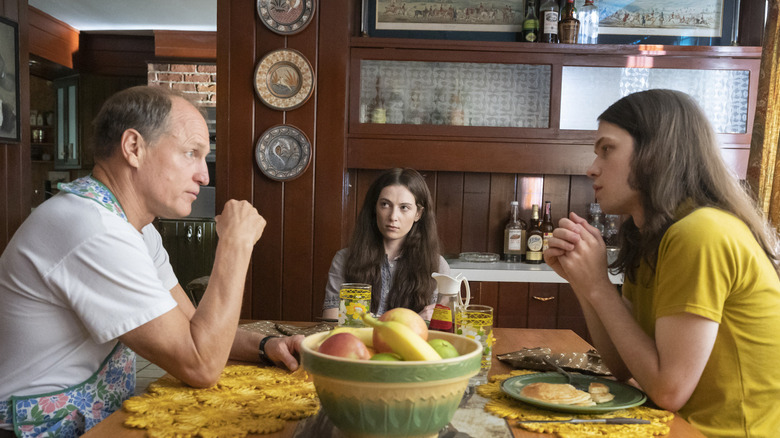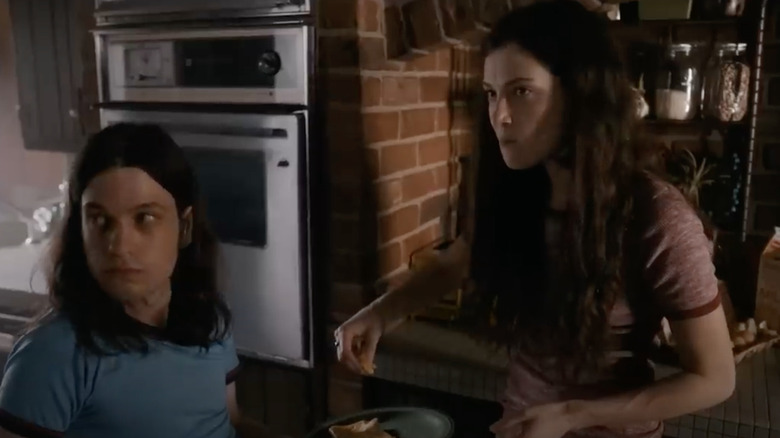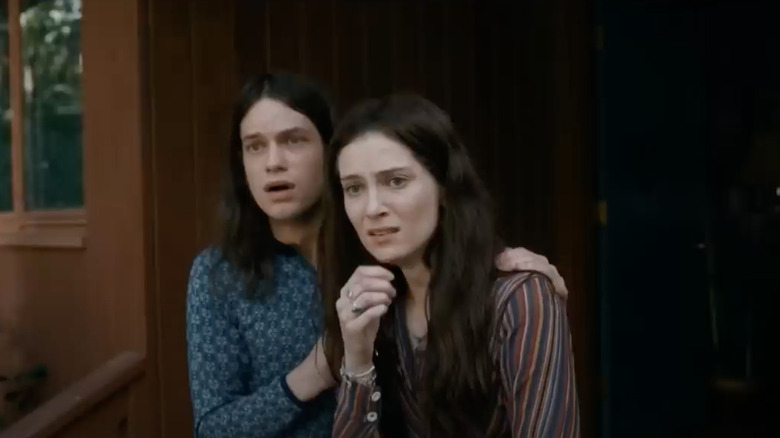What Happened To The Real Lisa Hunt From White House Plumbers?
Alex Gregory and Peter Huyck's HBO miniseries "White House Plumbers" is a tonally audacious, behind-the-bungling tale of the men who botched the Watergate break-in and set in motion the demise of Richard M. Nixon's presidency. The series is focused on the two "masterminds" of the errant operation: E. Howard Hunt (Woody Harrelson) and G. Gordon Liddy (Paul Theroux). The five-episode series, directed by David Mandel (the former showrunner of "Veep"), is both broadly comedic and bruisingly tragic, as it must be.
What these men and their inept coconspirators carried out is easily the most egregious own-goal in the history of American politics. Nixon was riding high in the polls against his liberal 1972 opponent, Senator George McGovern of North Dakota, when they pushed through a plot to infiltrate the DNC headquarters housed at the sprawling Watergate complex in Washington D.C. After four failed missions, the group finally breached the office, only to be busted by undercover cops. Nixon weathered the early days of the scandal to score a massive landslide victory against McGovern, but his treacherous inner circle, and their hilariously conflicting cover-up stories, hastened his demise. Two years into his second term, he resigned in disgrace.
Nixon had done too much for his wealthy donors to meet the ruinous fate he richly deserved. The bulk of the pain was felt by the operatives who broke the law for his political gain. No family suffered more than the Hunts. And within that circle, no one had it worse than their eldest daughter Lisa.
A family fractured by inchoate fascism
In the first two episodes of "White House Plumbers," we're thrust into the discordant domesticity of the Hunt family. When we meet Howard, he's a gruff, bitter former CIA agent plugging away in the private sector. He's a Beltway joke blemished by the failure of the Bay of Pigs, but too connected to be completely out of the game. His prayer to get back in the political game is answered when Chuck Colson, Nixon's hatchet man, appoints him to head up a dirty tricks unit dedicated to undermining Nixon's opponents.
Gregory, Huyck and Mandel portray Howard as a blustery sap who's exploited for his anti-communist paranoia and blind loyalty to the president. His maniacal dedication to the cause conflicts with the matriarchal chill of his CIA-vet wife Dorothy (Lena Headley), and the pot-smoking antics of his eldest daughter and son. The teenaged John (Liam James) is a gentle, stammering boy who's inherited his father's love of music. Lisa (Zoe Levin), however, is a mess, and not explicitly through anyone's doing.
Lisa sustained a head injury in a car accident years prior to the events of the show, and has dropped out of college. She's prone to righteous outbursts against perceived injustices. We want to be on her side, but when she embarrasses her parents by raging against racist country club manager for allegedly directing racist comments at a Black employee (who wants nothing to do with this fracas), we wonder if she's making a scene simply to wound her parents.
Lisa's instability will be an issue for the Hunt family going forward in the series. And, spoiler, it's a predicament without a happy ending.
Stability in Sin City
The kids were scattered to the wind following the multiple tragedies visited upon the family over the next two years. After finding refuge with friends, Lisa darted west to Las Vegas, where she flipped the script entirely by becoming an insurance company executive, and, as happened to many a counterculture Baby Boomer, a fundamentalist Christian.
It's a jarring reversal. In the series, Lisa is prone to explosions, but, even with the head injury, she's got a right to be hostile. She's sniffed out the surreptitious rot at the center of her parents' marriage, and is driving herself mad trying to reconcile her contempt for them with her unconditional love.
Little has been written about her life post-Watergate, and she is absolutely entitled to her privacy. But Levine's fiery portrayal is one of the series highlights, and it leaves you rooting for her to find some higher purpose than insurance salesman. That she reconciled with her father — who, throughout his life, dropped hints about his near-involvement in the assassination of President John F. Kennedy — is both disappointing and understandable. When it all falls apart, family is your last refuge. And, in this case, that is Lisa's business alone.


